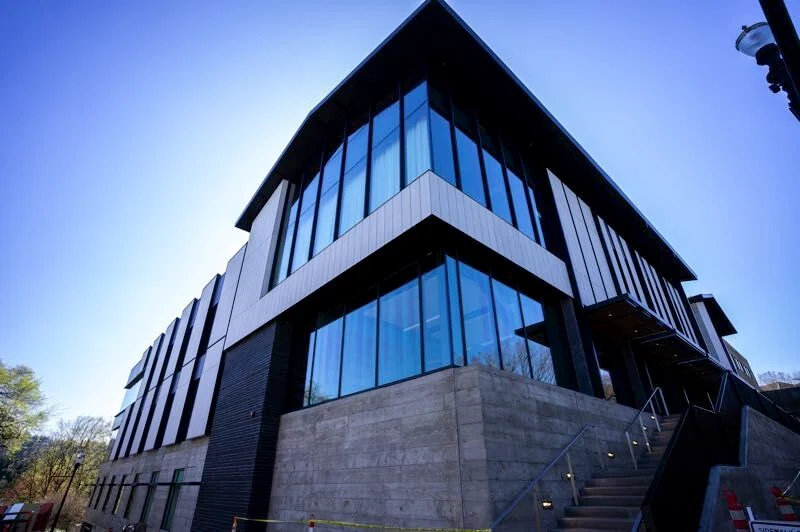LAKE OSWEGO, Ore. — City leaders in Lake Oswego are voicing growing frustration with Oregon’s sweeping housing policies, which continue to limit local decision-making in the name of boosting housing production.
Although the city recently received an exemption from one set of state mandates, the exemption carries heavy conditions that leave officials feeling squeezed between state demands and local values.
Balancing Local Character with State Rules
At a Sept. 16 City Council meeting, Councilor Rachel Verdick summarized the sentiment of many colleagues.
Also Read
“Give us some credibility that we can manage maintaining and running our city, maintaining the character of our city while at the same time addressing these bigger issues,” Verdick said. “Set high goals, overarching goals, but get out of the weeds please. We’ve had enough.”
The exemption shields Lake Oswego from a policy requiring cities to accept up to 10 adjustments to local land use codes — rules that cover setbacks, parking, lot coverage, density limits, and design standards — for housing applications meeting state criteria. These policies generally favor middle housing like duplexes and multifamily projects.
Strings Attached to Exemption
In exchange for the exemption, Lake Oswego must approve at least 90% of adjustment requests submitted by developers, submit annual reports, and distribute information to applicants.
Although city staff said the city has historically approved 100% of housing-related adjustment requests, councilors fear developers could take advantage of the rule. More ambitious proposals might force the city to either approve projects that clash with community character or risk losing the exemption altogether.
Concerns Over Affordability
Mayor Joe Buck expressed skepticism that the state’s approach would lead to more affordable housing.
“These variances do not come into play only to build more units,” Buck said. “They are allowing shortcuts to developers who would otherwise build under our local code and standards. To the extent adjustments would result in more units, in our jurisdiction they would be larger, more expensive units — not cheaper or more affordable ones.”
Buck criticized the state for pursuing policies that, in his view, benefit developers at the expense of local communities.
“The state’s attempt to strip local control away in the name of housing production is shortsighted,” he said. “It’s an ill-fated decision by lawmakers without any local policymaking experience, playing to their large donors instead of addressing the real issues behind Oregon’s housing shortage — a lack of buildable land, anti-business legislative rhetoric, and an economy that is circling the drain.”
A History of State Intervention
Since 2017, Oregon lawmakers have repeatedly passed legislation aimed at tackling the housing crisis. Measures have included:
-
Allowing middle housing in traditionally single-family neighborhoods
-
Requiring cities to adopt housing production goals
-
Most recently, House Bill 2138 in 2025, expanding mandatory adjustments to local codes
For Lake Oswego, these frequent legislative changes have been disruptive. City Manager Martha Bennett noted that the city has already seen some progress under local planning — such as two cottage cluster developments in the First Addition neighborhood — but argued the state’s rules keep shifting before local policies have a chance to show results.
“We’re amending code that really hasn’t had the chance to work,” Bennett said.
Conflicts and Compliance Challenges
City staff also pointed to conflicts between Lake Oswego’s local code and new state mandates. Council members agreed to monitor the situation and gather more information before deciding whether these conflicts will require further revisions.
Meanwhile, city staff say they are spending significant time simply keeping up with new laws, a burden that takes away from other priorities.
The Bigger Picture
Lake Oswego’s frustration reflects broader tensions across Oregon, as state lawmakers attempt to address a severe housing shortage by loosening local restrictions. Supporters argue these changes are necessary to combat decades of underbuilding and exclusionary zoning.
But opponents, particularly in suburban and affluent communities, say the state is undermining carefully developed local codes and ignoring practical obstacles such as infrastructure, land availability, and market realities.
For Lake Oswego, the question is not just about how to build more housing, but how to balance growth with preserving community character.
Looking Ahead
As the city works to comply with the exemption’s conditions, councilors made clear they intend to continue pushing back against what they see as state overreach.
“Local governments know their communities best,” Verdick said. “We want to do our part to address housing needs, but we also want the ability to protect what makes Lake Oswego unique.”
For now, the city remains caught in the middle — tasked with meeting ambitious state goals while trying to safeguard its identity.












